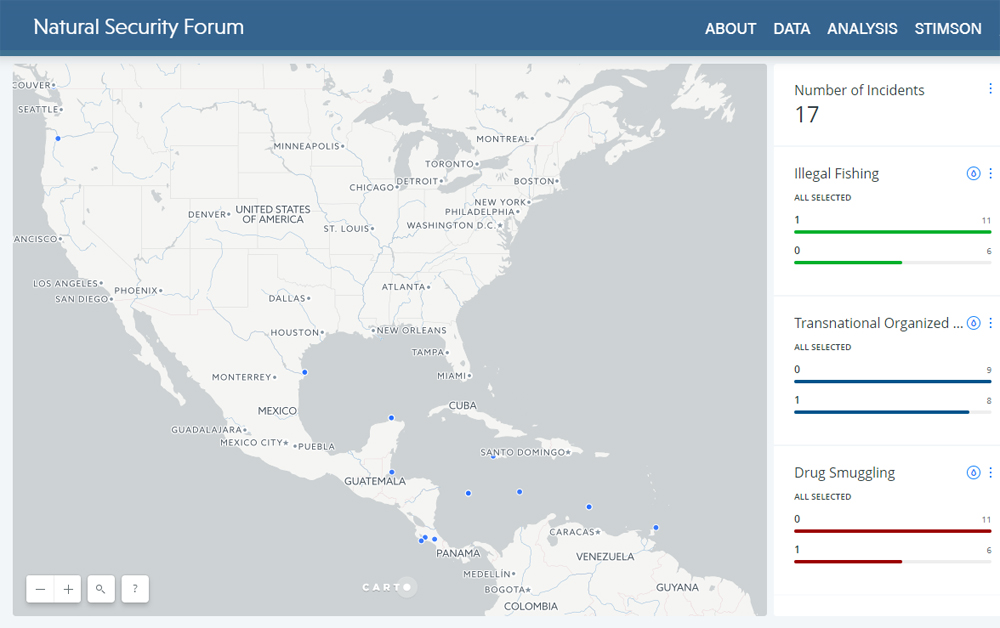-
Fishing for Criminals: Mapping the Security Threats of Illegal, Unreported, and Unregulated Fishing
August 9, 2017 By Namita RaoOrganized crime, arms and drugs smuggling, and conflict often overlap with environmental crimes like illegal fishing. A new interactive database from the Stimson Center’s Environment Security program maps incidents of illegal, unreported, and unregulated (IUU) fishing with the aim to “illuminate and educate on the geostrategic security implications of environmental crime; foster the creation of a new and expanding community of natural security stakeholders; and change the terms of the conversation on environment crime, leading to innovation policy solutions.”
Powered by Number Crunch, an open-source database, the Natural Security Forum’s illegal fishing map tracks incidents in four categories of threats:
- Transnational organized crime and/or terrorism
- Geostrategic threats at the national and international levels
- Slavery and/or illegal immigration
- The legal fishing industry implicated, wittingly or unwittingly, in transnational organized crime, terrorism, and other security threats.
The database includes more than 200 incidents of IUU fishing from 2016 that could impact U.S national security. But this is only a small fraction of the probable incidents; as the Stimson Center notes, “in areas of the world where there are few incidents, analysts and policymakers should take note, for this likely reveals a gap in capacity to monitor, enforce, and prosecute perpetrators of IUU fishing.”
The tool has some limitations; for example, hyperlinks to the news sources would be useful, as would a tutorial for users. If the entire map was placed on a Google Earth base layer, the regional specificities would be more coherent. The category tabs do not provide an easy way to aggregate across categories. Updating these features would help us understand connections between crimes and draw a regional picture for policymakers.
By illustrating the intersection of fishing with crime and security, the database provides a critical perspective missing from other online platforms. The Stimson Center could further increase the database’s impact by collaborating with existing IUU tracking tools and conflict databases such as Global Fishing Watch, Atlas of Marine Protection, and Global Conflict Tracker; integrating other datasets could open new avenues for producing rich analysis of the complex nexus between fishing, crime, and conflict.
Sources: Council on Foreign Relations, Global Fishing Watch, Marine Conservation Institute, The Stimson Center’s National Security Forum
 A Publication of the Stimson Center.
A Publication of the Stimson Center.




